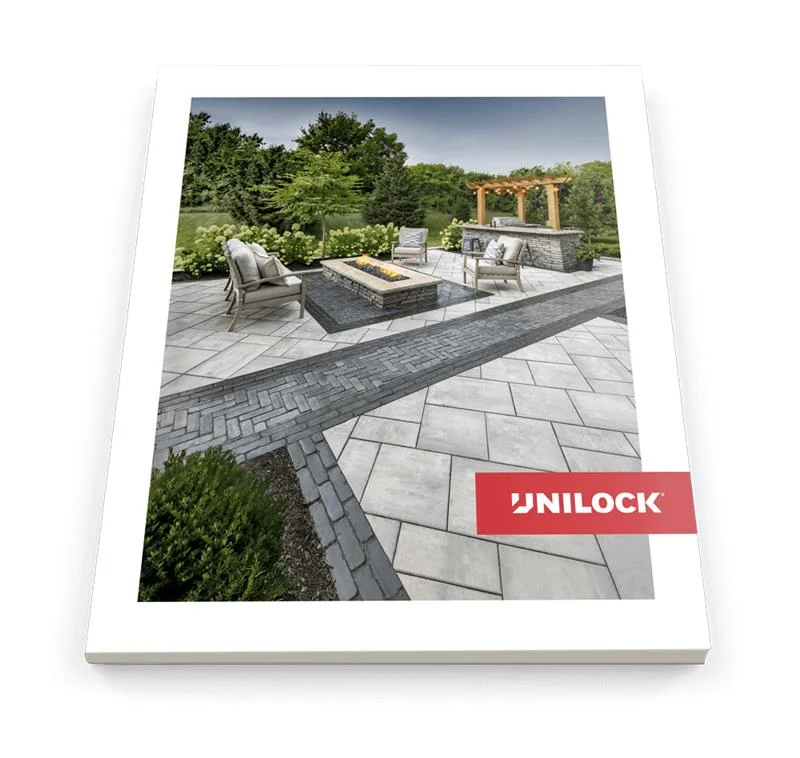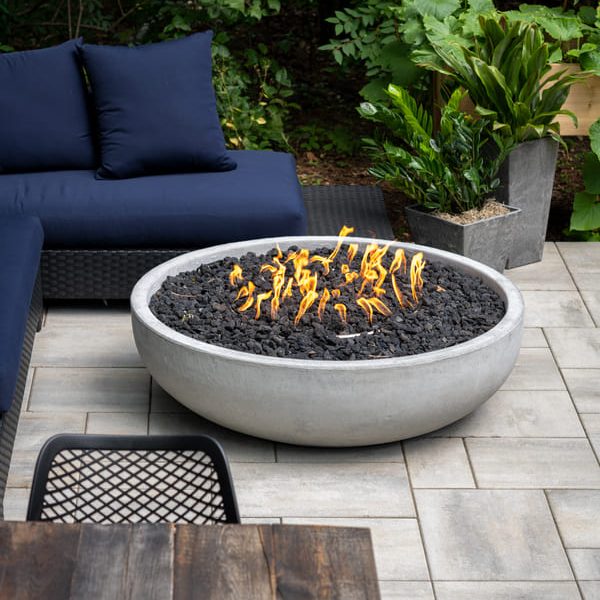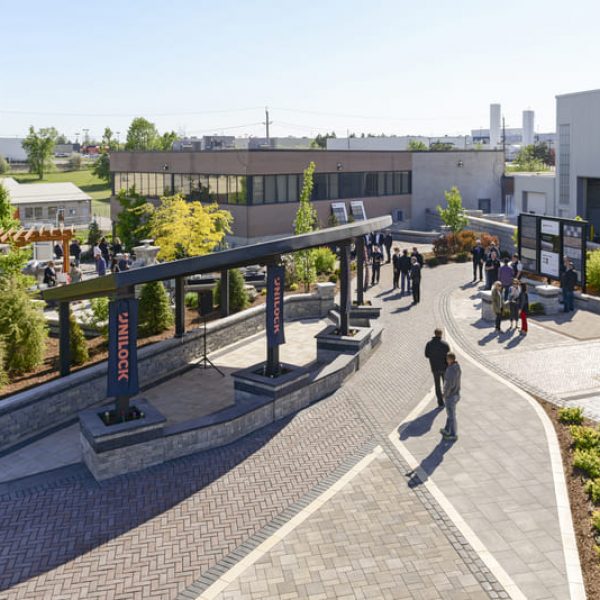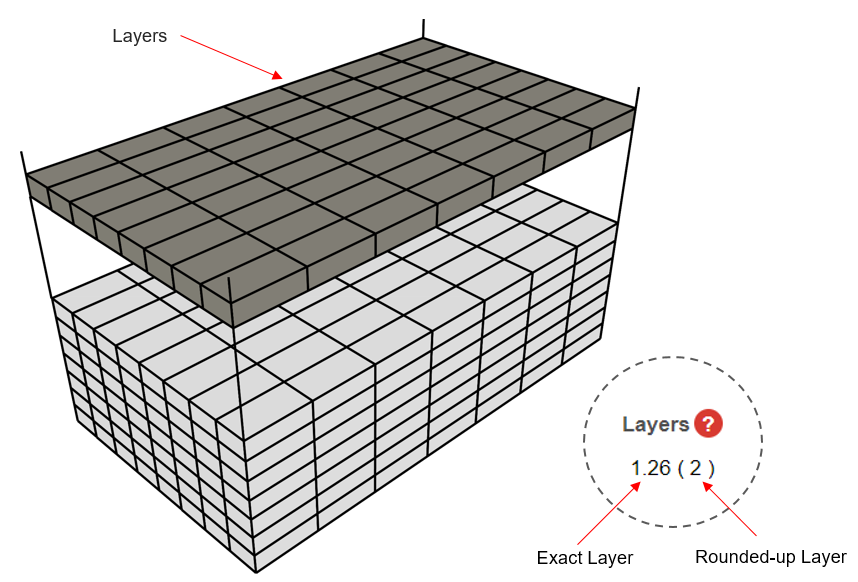
Putting money and effort into developing your home’s landscaping will generally produce a greater resale value and excellent curb appeal. A flat backyard, however, often feels uninviting and lacks coziness. Solve for this by including vertical design dimensions which help bring your living spaces to their full potential. Outdoor spaces that are located on different levels—separated by a few steps up or down—make the separate spaces feel alive and dynamic. Constructing steps and retaining walls using wall stone that matches the concrete pavers used for the patios will create a seamless flow throughout the hardscape.
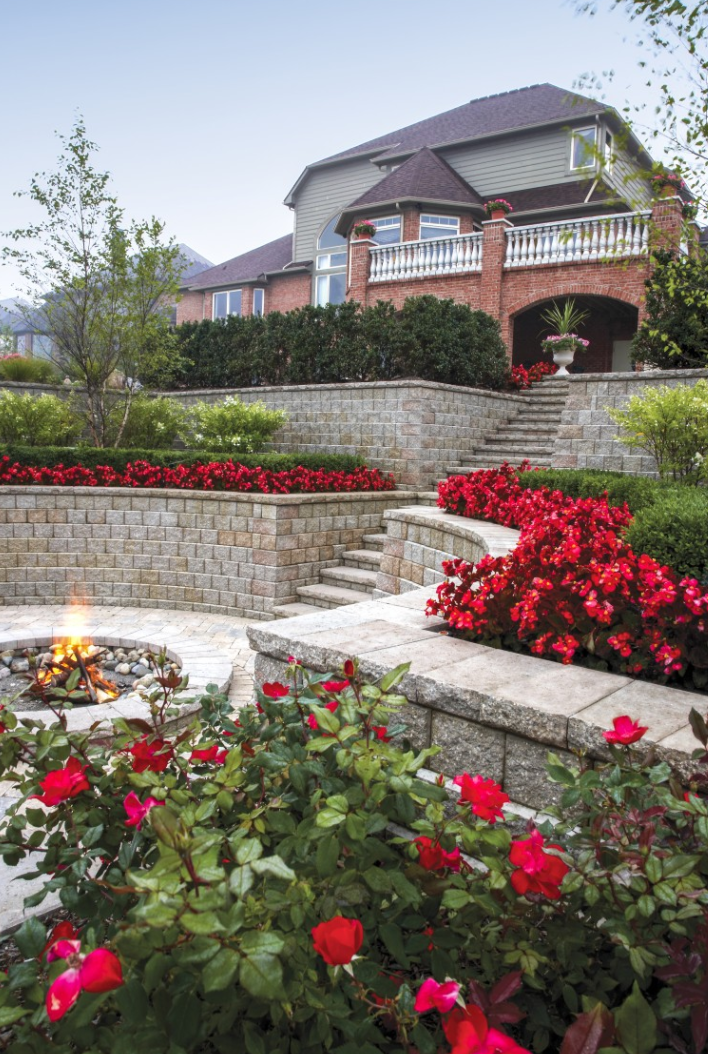
Tame your slopes
Retaining walls are often used to terrace a slope. Terraced walls can help to bridge the gaps between the functional levels created while also retaining the slope’s soil to combat land erosion. The gradual descent of a terraced slope can add interest to your landscape and define a classic, historical design when built using natural fieldstone—or better yet, a naturalistic concrete alternative like the Unilock Rivercrest Wall.

Re-invent seating with Built-in Options
Retaining walls can double as built-in seating walls, made more inviting by the addition of vibrant accent pillows. These low walls should be finished with a smooth wall cap to ensure a comfortable surface for sitting that won’t damage clothing. A fully furnished patio could always make use of extra seating when the usual family gathering expands to an enormous birthday party. An elegant Brussels Dimensional Stone fire pit can be partially enclosed by a curved seat wall of the same material, holding vibrant and contrasting flowers. Pools and hot tubs are also potential partners for your seat walls.
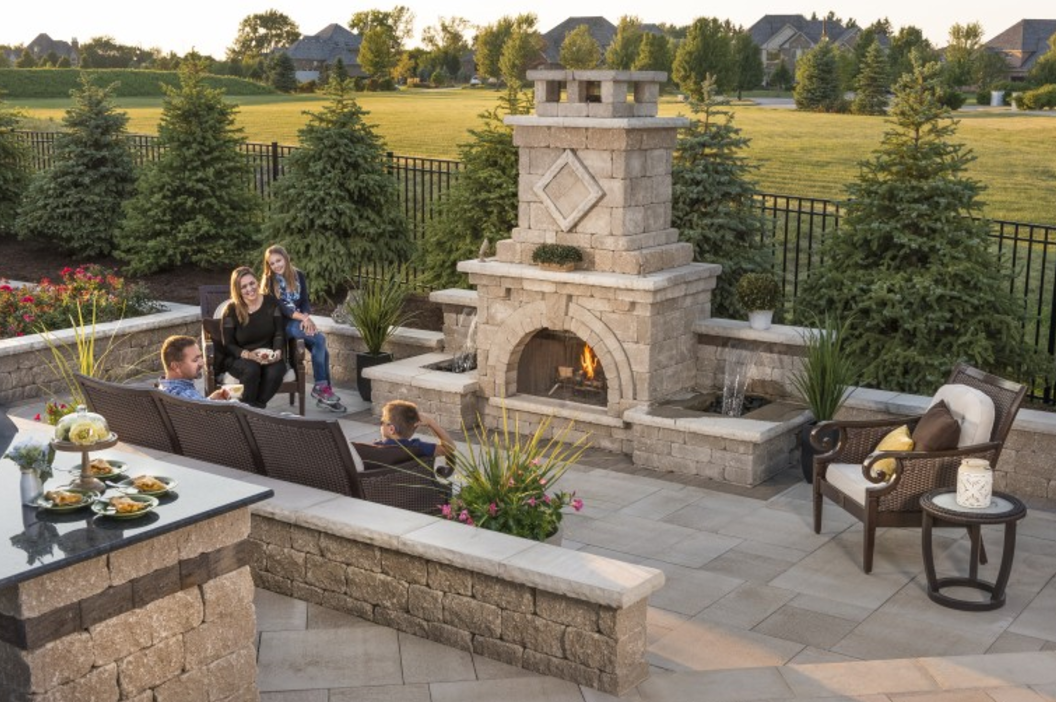
Separate different areas
Different levels within a landscape can define different groups of plants or separate ‘outdoor rooms’. Much like the interior spaces of our homes, these customized spaces serve different functions and moods. An area devoted to preparing food is usually more functional than the dining area, for example, which houses a warm and welcoming ambiance. A flat landscape with limited elevation changes can still be divided using stone pillars and decorative low walls.
RELATED: Check out even more great tips one the Unilock Blog!
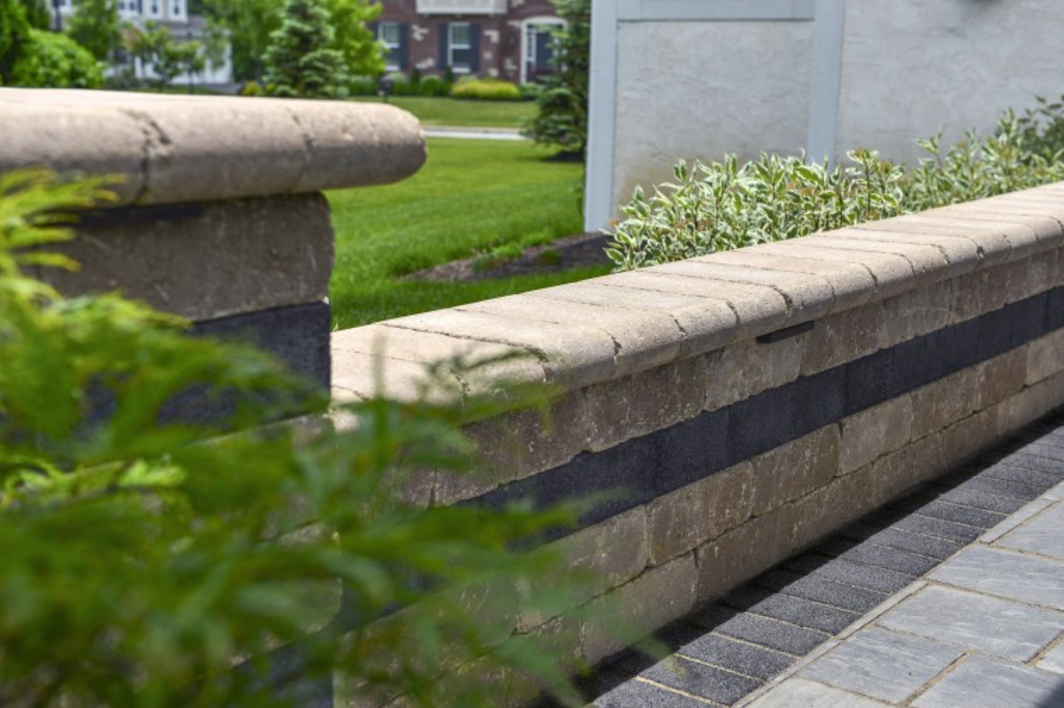
Use retaining walls as an aesthetic tool
Unilock offers an exceptional variety of retaining wall systems that can be used in endless combinations to create unique, eye-catching retaining walls that are far more than functional. Consider complementing your retaining wall stone with capstones in a similar shade. Retaining walls can be used to frame patios and stairways and can be curved to create romantic areas that accentuate the soft tones of any surrounding nature. When installed by a professional landscape contractor, a retaining wall’s style can be elevated with inset banding of contrasting colors and textures.
![]()
Experiment with pillars
Pillars add to the beauty of your patio, and in some cases, offer important structural supports for a covered roof overhead a patio. Once the size and shape of your pillars have been designed for optimal structural efficiency in needed, they can be customized further to complement the architectural style of your house. Upgrade your basic column posts by constructing short stone columns to frame them and using seat walls to span the spaces between them. Pillars are often used in conjunction with low walls, breaking up a tediously long stretch of retaining wall or being placed at both ends of the wall as the perfect accent to hold a lighting fixture or planter.
Pillars are often constituents of focal points as they are perfect candidates to hold ornate planters, lighting fixtures and garden statues. Lining your driveway with majestic pillars topped by charming lanterns can add curb appeal and complement the classic architecture of an old house, while the use of different materials and modern lighting can alternatively create modern columns for a contemporary landscape.
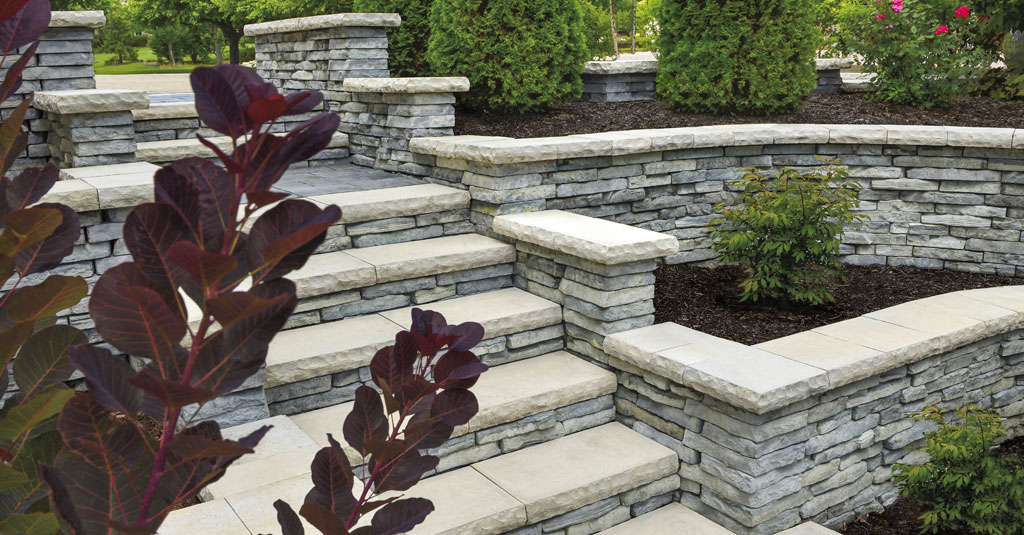
Create safe and stylish steps
Adding steps to a sloping landscape or entryway makes steep inclines easier to navigate and can architecturally tie the house to the surrounding landscape. Concrete retaining walls are durable, versatile and low-maintenance, making them an ideal material for your outdoor steps. Concrete steps can adopt an endless array of shapes to suit the style and layout of your backyard, giving you the opportunity to incorporate the environment into your design. Steps should be well-lit at all times and capped with a slip-resistant surface finish. Smooth concrete step caps like Unilock Ledgestone can give your slope a sleek, modern appeal while natural stone enveloped in low-lying shrubs will create a whimsical path that flows perfectly into the surrounding landscape.

